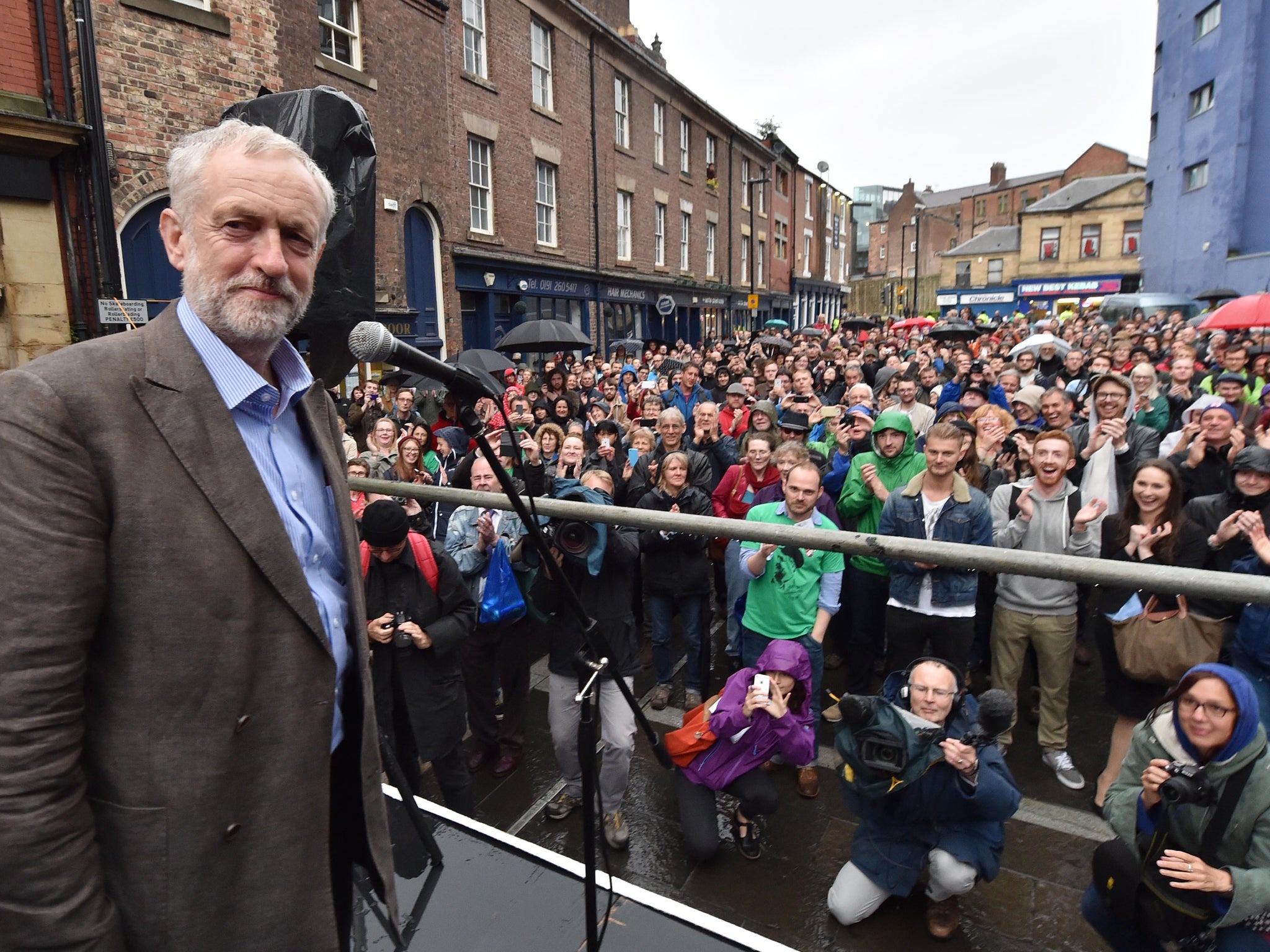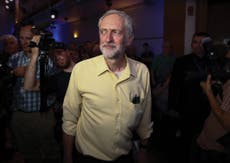Jeremy Corbyn is a stranger to responsibility and will loathe leadership
The days of hanging out in the company of people who agree with him is over


I feel for Jeremy Corbyn. Not for the extraordinary summer he has enjoyed: I am sure he has been having the time of his life, fired by adrenalin, as he heads towards his astonishing victory. But I pity him for what lies ahead, as he settles into the ghastly task of leading the Labour Party in opposition – a role for which he is so utterly unsuited. I suspect he will hate every miserable minute of it.
The Corbynites may think their man has been through a hard time already, when actually the onslaught has barely begun. David Cameron had a go at him last Friday on defence, and the Tories put out a briefing about what his policies might cost the taxpayer, but they have not given anything like the treatment dealt out to Ed Miliband. Why would they? They want him to win. They can begin the distressingly easy task of tearing Corbyn apart after he has been elected.
The first ordeal will come just four days after the result is announced, when Labour’s new leader will be put through Prime Minister’s Questions. In front of Jeremy Corbyn there will be rows of gloating Conservatives who think his election is a hilarious catastrophe. Behind him there will be Labour MPs, keeping glumly silent. Public opinion may at first be on Corbyn’s side, as they see this amiable pensioner being mocked and ridiculed; but it will happen over and over again, grinding him down.
As the chaos worsens, relations inside the parliamentary Labour Party will become poisonous. Corbyn’s Labour critics have also been comparatively restrained so far. They say they have nothing against Jeremy personally, that he is a nice guy, and they object only to his politics. However, these are not £3 day trippers whose idea of political involvement is to log on, vote Corbyn, and tell your mates via Facebook: these are professionals who have invested their working lives in the Labour Party. They want to be in government again. As that prospect disappears further over a distant horizon with this leader they never wanted at their helm, their political differences will turn to rage and resentment.
Anyone whose life is not immersed in Labour Party politics, of course, finds Jeremy Corbyn impossible to dislike. There is no malice in his make-up. I know that because when there was some bad stuff in the right-wing press about the state of Corbyn’s marriage, in 1999, I interviewed him and his estranged wife. She had nothing bad to say about him, which I take as reliable evidence that he is as amiable as he looks.
But this is a man whose life has been spent avoiding tiresome responsibility. He is like an adolescent with a head full of ideas who is not in the least interested in how his cherished principles impact on the outside world.
He and his wife had an irreconcilable disagreement over their son’s education. Islington’s schools were, at the time, rated among the worst in the country and Corbyn’s wife could not bear to send their boy to the local comprehensive, but not to do so would have breached Jeremy’s political principles. So they reached an amiable compromise: they separated, and she decided that young Ben would go a grammar school in Barnet.
Other Labour politicians have run into controversy over their children’s education, including Tony Blair, Harriet Harman, Charlie Falconer and Diane Abbott. Only Corbyn managed to avoid the problem – by saying it was not his decision. And nothing that a Labour government or the Labour Party has done has ever been Jeremy Corbyn’s responsibility either.
An assiduous local MP and a regular speaker at left-wing meetings of the like-minded he may be, but in 32 years Corbyn has never been a shadow minister, nor even a committee chair. Yet from the day his new role begins, he will be trapped in a never ending cycle of meetings, having to deal with people who do not share his world view, and who, frankly, have little respect for him.
The thousands who voted for Jeremy Corbyn will expect dramatic changes within the Labour Party. But, if Jeremy Corbyn wants to make it Labour’s policy to leave Nato, or the EU, or renounce nuclear weapons, or nationalise the Big Six energy companies, he will first have to get that through Labour’s National Policy Forum, where new ideas have been aired since the body was created by Tony Blair. If the Corbynites want to seize control of the NPF, they will have to oust its chairwoman, Angela Eagle, whose consensual style is popular with its membership.
Alternatively, Corbyn and his allies could try to ram these policies through Labour’s annual conference, but even with Unite and other unions behind him, it is not certain that the votes would be there. Some hardened Corbynites may think that the answer is to use the machinery of the Unite union to start of purge of Blairite MPs and other activists, but the people who voted for Jeremy Corbyn believing he was a nice guy might not like that.
Another possibility is that he will just have to give way and compromise – but some of the new Corbynites will not like that either.
Meanwhile, the pressure of the job will never let up. There has been a terrorist outrage: the nation will expect Jeremy to take to the airwaves to condemn it. There is an argument within the Shadow Cabinet about some technical detail of a complicated policy: refer it to Jeremy. Senior members of the leader’s staff have a job demarcation dispute: Jeremy’s problem.
There is an attempt in some local party to deselect a Blairite MP. Does the party machine intervene, or let it happen? Jeremy will have to decide. Someone who was once expelled from the Labour Party wants to be readmitted, but his local party officials do not want him – obviously, the problem is referred upwards, to Jeremy. There is a major vote coming up in Parliament and a difficult tactical decision has to be made about how Labour MPs should vote: what does Jeremy think?
The demands of the job of leader never end. That nice life, hanging out in the company of people who agree with him, is over. But there is one comforting thought to see him through the interminable hassle. Though it is sure to end in shattering defeat, for Corbyn personally and for the party, it will be not Jeremy who is responsible. Jeremy never is.



Join our commenting forum
Join thought-provoking conversations, follow other Independent readers and see their replies